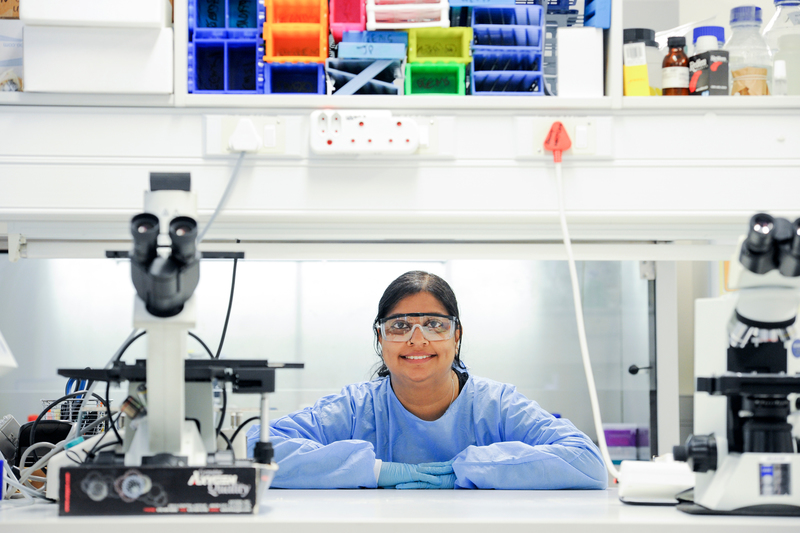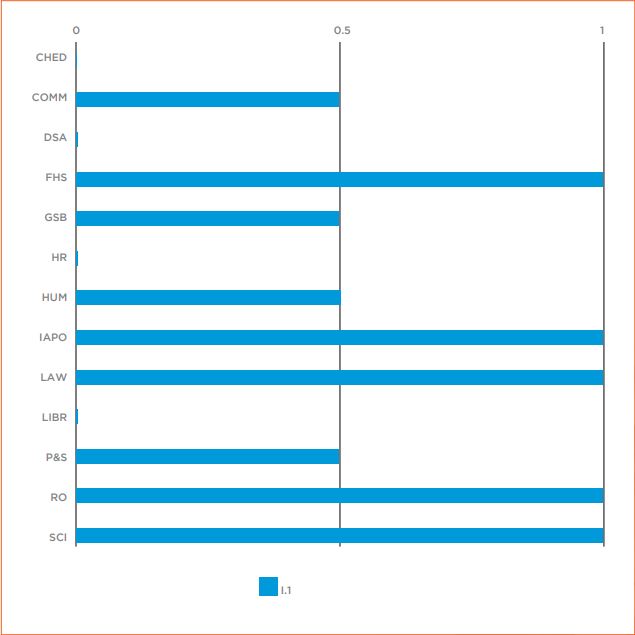Innovations, alternative approaches and best practices in transformation, inclusivity and diversity
04 November 2022
What are the innovations and best practices which have been employed to further transformation, inclusivity and diversity?

What is being tested?
 |
New and innovative practices | I.1 New, innovative or alternative approaches to building a transformed, inclusive and critically diverse higher education institution. |
What does the benchmark reveal?
This benchmark offers departments and faculties the opportunity to report on innovative, experimental and creative practices that were developed to strengthen transformation, inclusivity and diversity. While a range of interesting practices are reported here, it’s important to reflect on the impact and outcomes of these actions. For example, while using creative methods is exciting, does the use of a method lead to better outcomes? Or, while it is important to increase the number of black PhD candidates, do black PhD candidates feel welcome and included in the departments? Questions like these can encourage self-reflection on the effects and affects of these actions.

A small number of departments and faculties experimented with new practices in 2021, including using digital and online tools to further transformation.

Some departments shared that transformation work is not seen as a priority, which means little room or time is devoted to creativity or innovation in this area.
Which actions contributed tothis benchmark?
While several actions were implemented to meet this benchmark, three stand out as illustrative examples:
- In the Building Bridges programme, the Nelson Mandela School of Public Governance worked collaboratively with Club de Madrid (an international organisation that fosters democratic values and leadership) to provide an opportunity for students to participate in a Rethinking Democracy Challenge. This challenge, driven by Club de Madrid, invites young people to share their views and recommendations on the future of democracy. Club de Madrid is the world’s largest forum of former presidents and prime ministers, who work to strengthen inclusive democratic practice and improve the well-being of people around the world. A group of students were supported to draft and present a paper.
- Several entities reported creating or strengthening digital platforms for TDI, to better enable transformation committees and staff members to access information or get involved in transformation programming.
- Several entities created online events and sessions to encourage camaraderie and connectiveness during the COVID-19 pandemic. This included year-end videos, hosting online drinks or coffee sessions and WhatsApp groups to encourage inclusivity and belonging.
Who contributed to this benchmark?
Five faculties and three non-academic department contributed to this benchmark.
How effective were the actions?
Few faculties and departments intentionally experimented with new or alternative approaches to TDI. This may be because entities feel they haven’t covered the minimum actions expected of them, hence they do not have the courage or will to experiment with new or alternate approaches. However, the examples listed in this section highlight that unexpected and creative ways of responding to transformation challenges can lead to positive outcomes.
Recommendations
Social justice work is always an experiment in that approaches should always be based on evidence and always need to be tested for their efficacy. It would be beneficial to create an incubator for transformation innovations. The incubator could assist faculties and departments to think of new and more effective ways to further TDI.

Warning signs
In the first three years of capturing data on the benchmarks, entities reported meeting 55–60% of the benchmark requirements for Innovations, Alternative Approaches and Best Practices in Transformation, Inclusivity and Diversity. This benchmark has not been a priority for entities, likely because it is seen as a nice-to-have within a context where entities struggle to meet the criteria of the core benchmarks.

Sparks
While the above challenges are present, there are several hopeful sparks of change. For example, the Building Bridges Programme in the Nelson Mandela School of Public Governance connects students with world leaders in an attempt to rethink democracy.

Transformative awakening
While this benchmark area can be seen as a gap, it’s also an opportunity to encourage creativity and experimentation in transformation work. If work isn’t emerging organically, the OIC or the Hasso Plattner School of Design Thinking Afrika (d-school Afrika) at UCT could step in to encourage experimentation.
 This work is licensed under a Creative Commons Attribution-NoDerivatives 4.0 International License.
This work is licensed under a Creative Commons Attribution-NoDerivatives 4.0 International License.
Please view the republishing articles page for more information.






